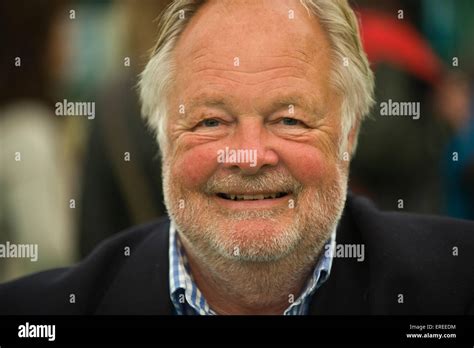A Quote by Rick Tumlinson
Homo Sapiens is a frontier creature. It is what we do; it defines what we are. This has been true from our very beginnings. It is the core reason our progenitors wandered forth from the first primordial valleys in search of more room, better hunting, or more fertile soil.
Related Quotes
It is true (independently of our conceptualisation) that it is wrong to inflict pain on a sentient creature for no reason (she doesn't deserve it, I haven't promised to do it, it is not helpful to this creature or to anyone else if I do it, and so forth). But if this is a truth, existing independently of our conceptualisation, then at least one moral fact (this one) exists and moral realism is true. We have to accept this, I submit, unless we can find strong reasons to think otherwise.
Our bodies are garbage heaps: we collect experience, and from the decomposition of the thrown-out eggshells, spinach leaves, coffee grinds, and old steak bones out of our minds come nitrogen, heat, and very fertile soil. Out of this fertile soil bloom our poems and stories. But this does not come all at once. It takes time. Continue to turn over and over the organic details of your life until some of them fall through the garbage of discursive thoughts to the solid ground of black soil.
The paradox of the human condition is expressed more in education than elsewhere in human culture, because learning to learn has been and continues to be Homo Sapiens' most formidable evolutionary task... It must also be clear that we will never quite learn how to learn, for since Homo Sapiens is self-changing, and since the more culture changes the faster it changes, man's methods and rate of learning will never quite keep pace with his need to learn.
The rural economy is significantly better. Our natural resources, particularly our working lands, are more resilient. And more money is being invested in soil conservation and water preservation. Our forests will be in better shape if Congress does what it needs to do to fix the fire-suppression budget.
The humanity and the humility, which are very different than the biological species homo sapiens. Humanity versus homo sapiens - very different things. We are biological creatures, we are animals, no doubt, but when you talk about "humando," you're talking about that particular kind of animals who are aware of their impending extinction, who have the capacity to be sensitive to catastrophe and disaster and calamity and profound crisis.
Our principles fix what our life stands for, our aims create the light our life is bathed in, and our rationality, both individual and coordinate, defines and symbolizes the distance we have come from mere animality. It is by these means that our lives come to more than what they instrumentally yield. And by meaning more, our lives yield more.


































